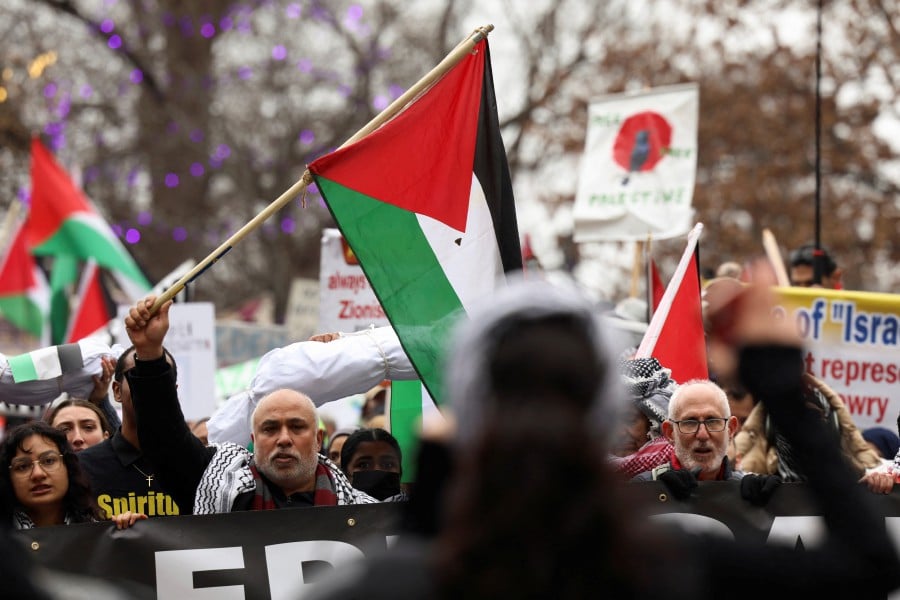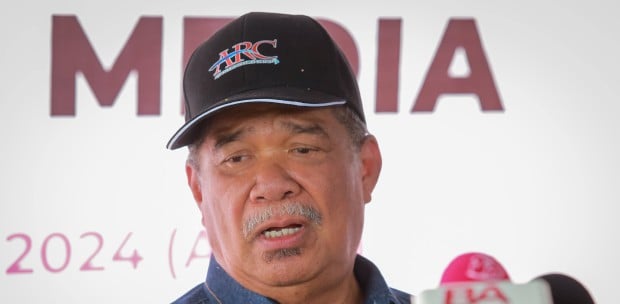CONSIDER yourself the top dog of the state of any European superpower, or the president of the United States. How will you be facing a Palestine-Israel conflict through the possible means of "realpolitik" nowadays?
I intentionally used the phrase "politik". That kind of nuance may be seen in the late US Secretary of State Henry Kissinger's policy criticism. It is a Germanic spelling of "politic".
The spelling doesn't matter, but the substance and impact of what Kissinger did matters. Moral norms are thin and ambiguous in realpolitik — also known as "political realism" by some.
Realpolitik actors have always dealt with reality to win the race, not to confirm an ideological or idealistic measure. They include Kissinger, who died at the age of 100 two weeks ago.
For many, Kissinger was an influential thinker. However, at the same time, he was a controversial diplomat who was responsible for bombing Cambodia in 1969 under the Nixon administration.
Ironically, he was granted the Nobel Peace Prize in 1973, although Kissinger voluntarily returned the prestigious medal two years later. Some may have disagreed with the Nobel Committee at the time on giving the honour to Kissinger. Two members actually walked out in protest at the decision.
But, in the eyes of Western superpowers, they required a scapegoat for a conflict. Without considerable hesitation, Kissinger was the one. They pinpointed him.
A layer beneath Kissinger's grand strategy was no less than what Freudians have popularly addressed as "animal instinct in a human being".
Somehow, you need to backstab the closest one. Kissinger passed confidential information to Richard Nixon regarding the peace talks in Paris, which were a plan to conclude the then ongoing war in Vietnam.
Nixon was the Republican nominee for the Oval Office. Kissinger at the time was occupying the official position of adviser to President Lyndon B. Johnson (LBJ), who was Nixon's formidable Democrat opponent.
Today, we know Kissinger divulged the secrets about the Paris peace talks — later he also sabotaged them — because he thought Nixon would gain the presidency.
Kissinger went on to be appointed as a national security advisor, where he had unprecedented levels of control. Kissinger left his ex-boss, LBJ, behind.
Today, what I call "Kissingerism," or as some have phrased it, "Kissingerology," has been applied to American foreign policy by both Democrats and Republicans - symbolised by a "Donkey" and an "Elephant".
The notable differences were only in how they were presented or creatively promoted to the world. From that politically correct point of view, whether Joe Biden or Donald Trump is elected the next US president is irrelevant.
The methodological approach towards international conflicts is similar to the Kissinger era. The legacy has been bequeathed and has been the foundation for American foreign policy since then.
In contrast, the world community can objectively measure the lengthy conflict between Palestine and Israel as a case study.
For over two months since Oct 7, more than 18,000 people have died in the Gaza Strip and the West Bank, including babies in incubators, the elderly, girls and women as martyrs.
The best the Malaysian government can do is to respectfully urge the American president to press Israeli Prime Minister Benjamin Netanyahu indirectly to agree to an extended ceasefire in Gaza.
That was precisely what Prime Minister Datuk Seri Anwar Ibrahim did in his speech at a roundtable talk in front of Biden at the 30th Apec Economic Leaders' Meeting in San Francisco last month.
It is tragic for human civilisation to believe that the world either needs wars or conflicts to keep the majority of the world at peace. An ideal world without war is the same as a dangerous world teeming with conflicts.
It is, on top of that, the main reason why the Arab League of countries did not desire to make an excessive commitment to free Palestine following the Arab-Israeli war in 1973.
Habitually, conflicts involving religions and faiths is more difficult to resolve than political ideologies. However, killing and labelling innocents as "terrorists" has more and more shifted this issue from religion into a discourse on universal humanity. Humanity has always transcended religion and narrow nationalism.
We recognise that another approach to launching missiles against Tel Aviv is for the international community to use economic measures - such as boycotting goods or those companies associated with or supporting the Israeli-Zionist regime.
Global pro-freedom and democracy groups have learned from the immature strategies devised by fundamentalist radicals in the aftermath of Osama Bin Laden's Sept 11 tragedy plot on America's Twin Towers which has proved fatal to their cause.
Violence cannot be met with violence. The one-state, two-state, or 10-state solution can only be solved when we realise where the Achilles' heel of modern-day diplomacy is.
The writer, also known as Buddhi Hekayat, is former policy director at the Selangor Menteri Besar's office (2015-2018), a political activist and an award-winning lyricist. His writing can be read at hasmihashim.com





